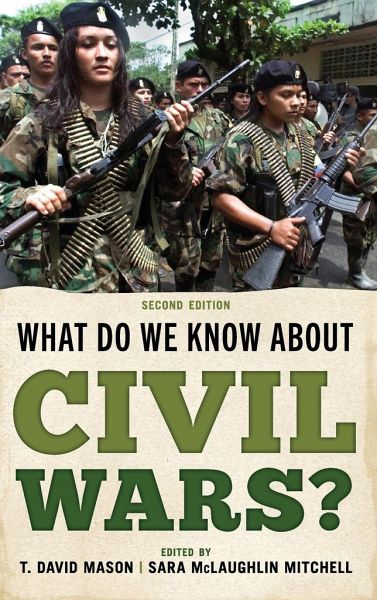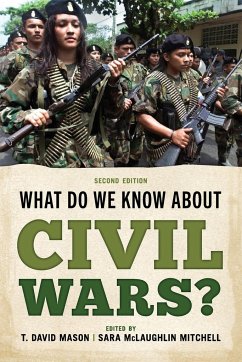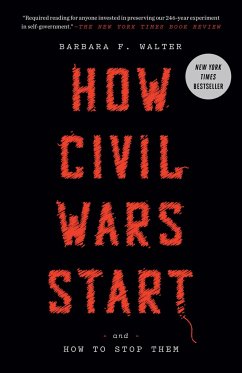
What Do We Know about Civil Wars?
Versandkostenfrei!
Versandfertig in 1-2 Wochen
111,99 €
inkl. MwSt.
Weitere Ausgaben:

PAYBACK Punkte
56 °P sammeln!
Since World War II, civil wars have replaced interstate wars as the most frequent and deadly form of armed conflict globally. How do we account for when and where civil wars are likely to occur, when and how they are likely to end, and whether or not they will recur? In this timely book, leading scholars accessibly guide students through cutting-edge research on the onset, duration, outcomes, and recurrence of civil wars, as well as the ongoing consequences of conflicts in war-torn countries such as Syria, Sudan, and Rwanda. In mapping out the current state of our knowledge about civil conflic...
Since World War II, civil wars have replaced interstate wars as the most frequent and deadly form of armed conflict globally. How do we account for when and where civil wars are likely to occur, when and how they are likely to end, and whether or not they will recur? In this timely book, leading scholars accessibly guide students through cutting-edge research on the onset, duration, outcomes, and recurrence of civil wars, as well as the ongoing consequences of conflicts in war-torn countries such as Syria, Sudan, and Rwanda. In mapping out the current state of our knowledge about civil conflicts, the authors also identify what we do not know about civil wars. With a consistent approach across chapters and through a wide variety of cases, the contributors collectively help readers understand some of the most pressing questions in conflict and security studies and illustrates how scholars answer them. This authoritative text offers both an accessible and current overview of the state of the field and an agenda for future research. The second features: ·An entirely new chapter on pro-government militias and rebels as criminal groups (Chapter 16) ·Analysis of new trends in civil war data collection that have enabled us to understand geographic and temporal patterns of armed conflict ·New directions in transitional justice institutions in post-conflict environments, the "resource curse," the role of women, and the relationship between the environment and civil conflict ·New material on mediation of conflict and peace agreement implementation, and peacekeeping ·Examples drawn from the Russia-Ukraine conflict.














